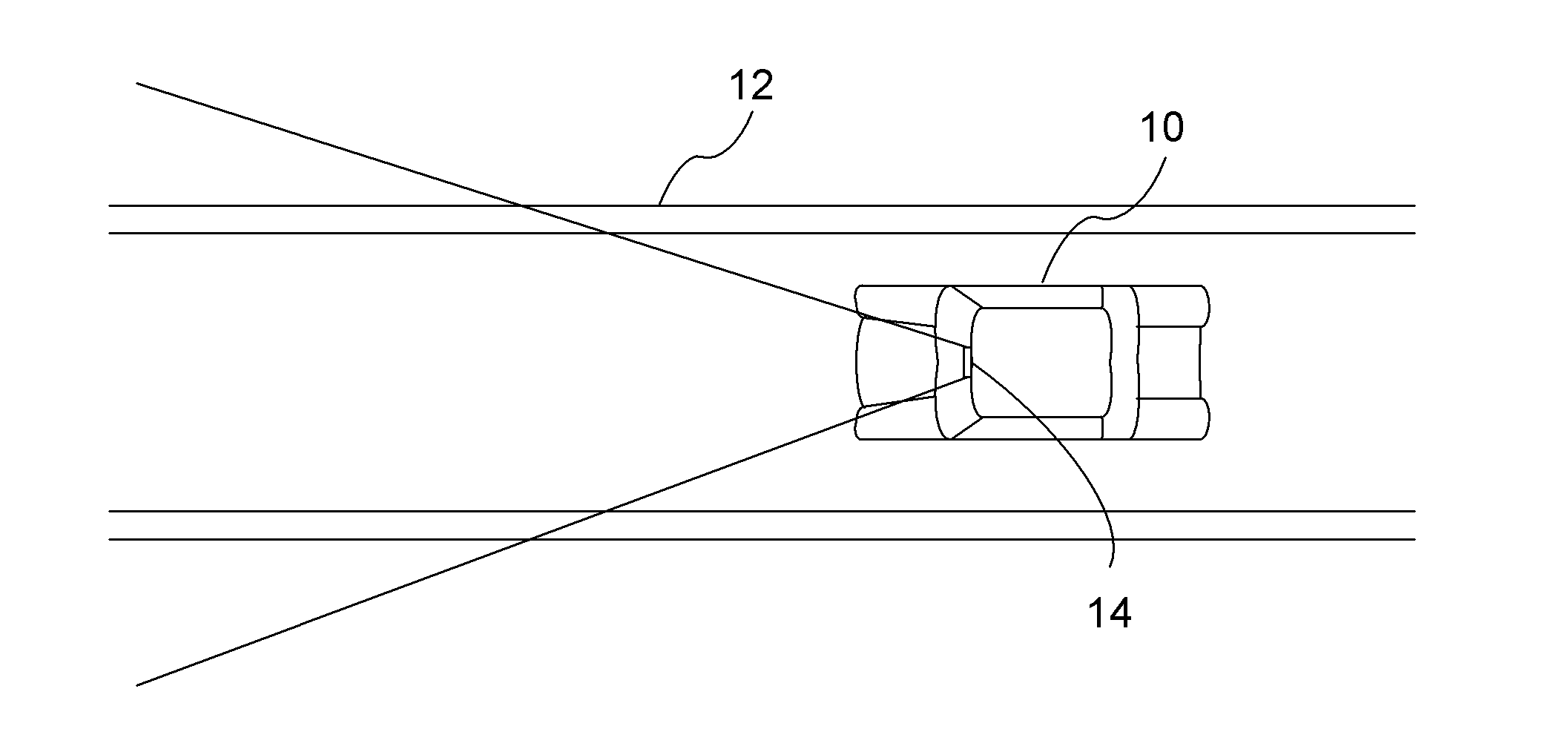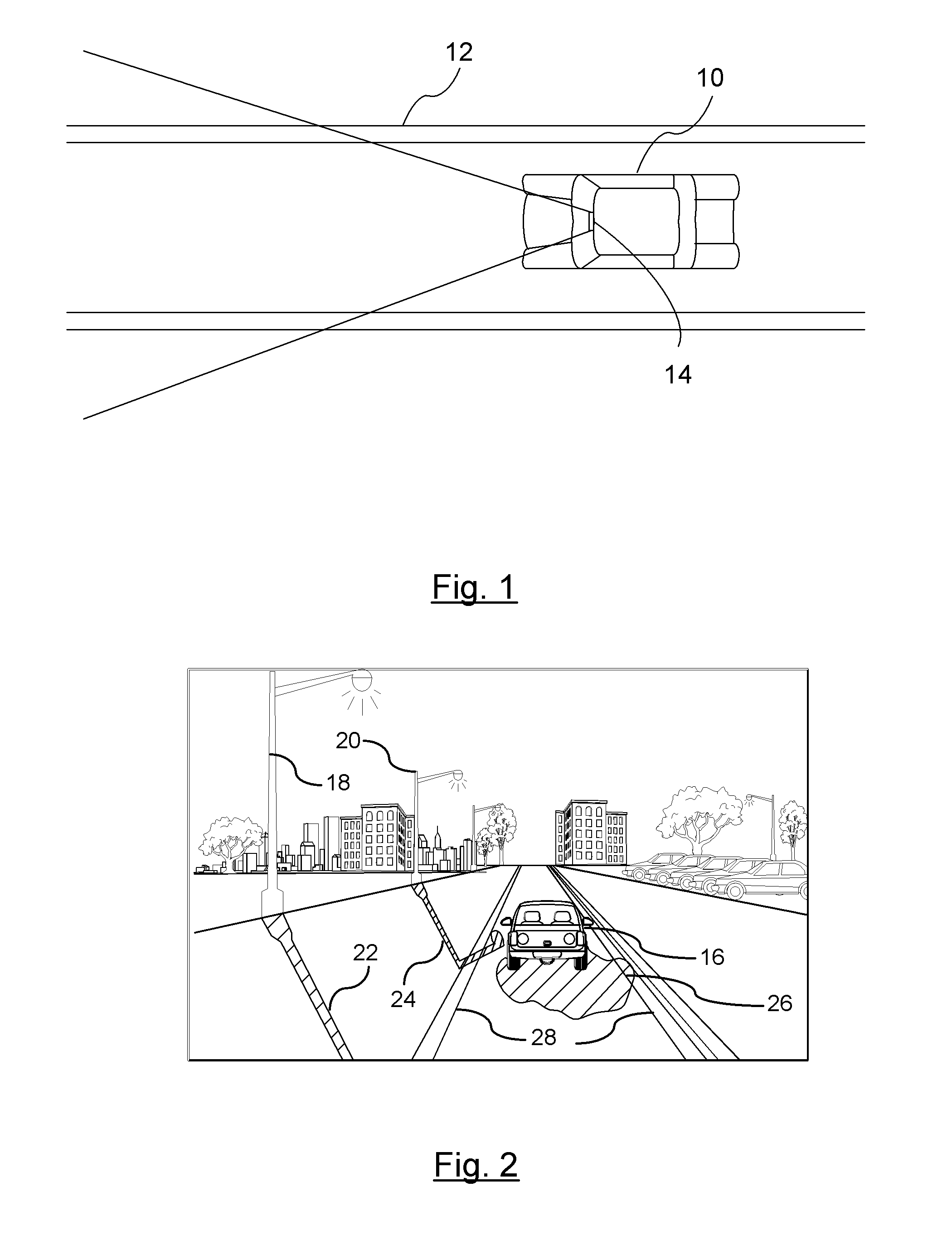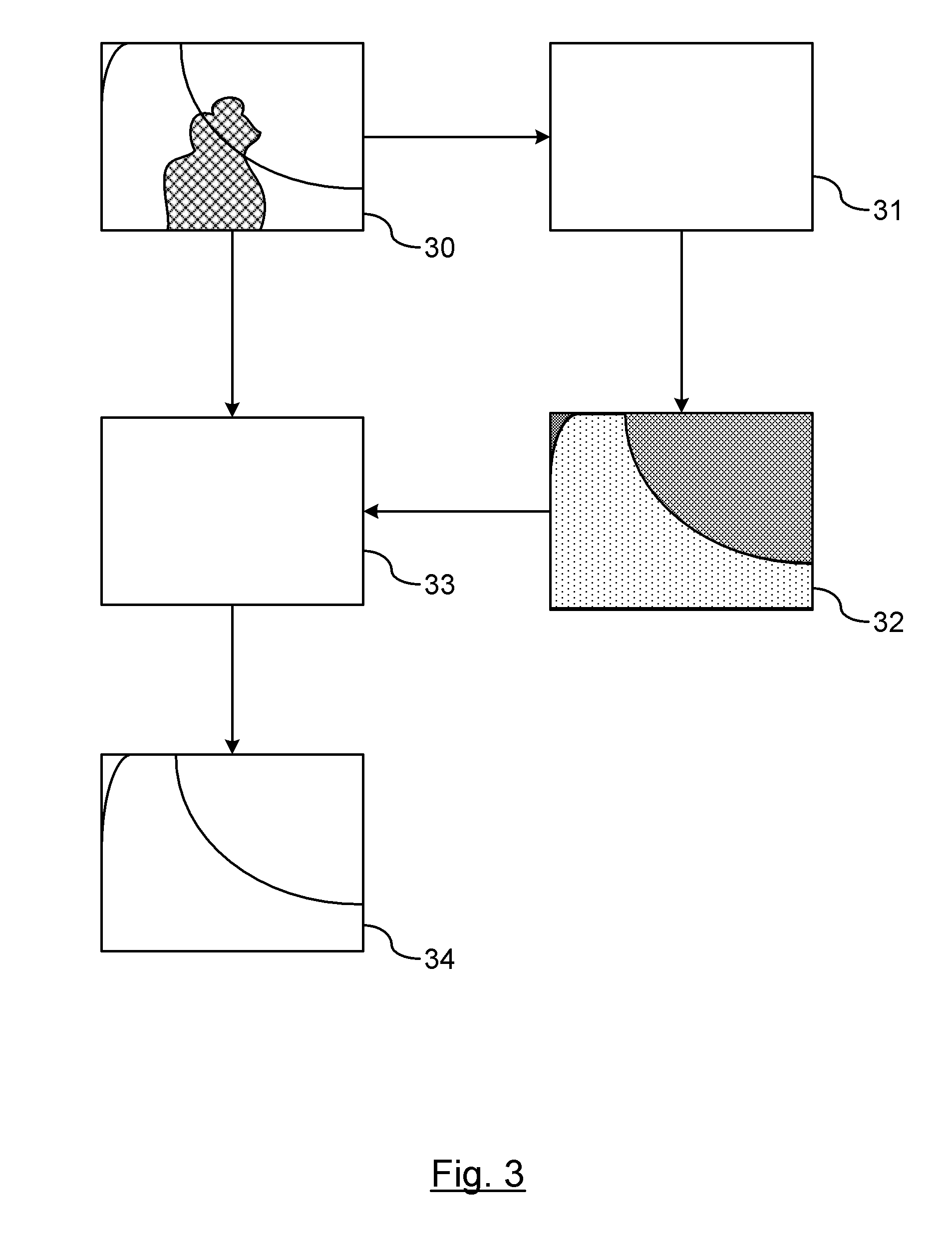Shadow Removal in an Image Captured by a Vehicle Based Camera Using a Non-Linear Illumination-Invariant Kernel
a vehicle-based camera and kernel technology, applied in image enhancement, instrumentation, color signal processing circuits, etc., can solve the problems of high-quality imager cameras, ambiguities between, and errors in vision-based object detection systems, so as to reduce shadows and remove any lighting influence
- Summary
- Abstract
- Description
- Claims
- Application Information
AI Technical Summary
Benefits of technology
Problems solved by technology
Method used
Image
Examples
Embodiment Construction
[0012]There is shown in FIG. 1, a vehicle 10 traveling along a road 12. A vision-based imaging device 14 captures images of the road forward of the vehicle 10 for detecting images in the feasible region of travel (hereinafter referred to as clear path). The vision-based imaging device 14 is used to detect objects. In a preferred embodiment, the vision-based imaging device 14 is used to identify the clear path or lane markings in the road for systems such as, but not limited to, lane departure warning systems. The vision-based imaging device 14 is preferably mounted in the interior of the vehicle just behind the windshield for capturing events occurring exterior and forward of the vehicle. Although the vision-based imaging device 14 may be used for a variety of functions (e.g., night vision enhancement for the driver), the primary purpose as described herein is for systems that require the recognition of road marking, lane markings, road signs, or other roadway objects. An example of...
PUM
 Login to View More
Login to View More Abstract
Description
Claims
Application Information
 Login to View More
Login to View More - R&D
- Intellectual Property
- Life Sciences
- Materials
- Tech Scout
- Unparalleled Data Quality
- Higher Quality Content
- 60% Fewer Hallucinations
Browse by: Latest US Patents, China's latest patents, Technical Efficacy Thesaurus, Application Domain, Technology Topic, Popular Technical Reports.
© 2025 PatSnap. All rights reserved.Legal|Privacy policy|Modern Slavery Act Transparency Statement|Sitemap|About US| Contact US: help@patsnap.com



